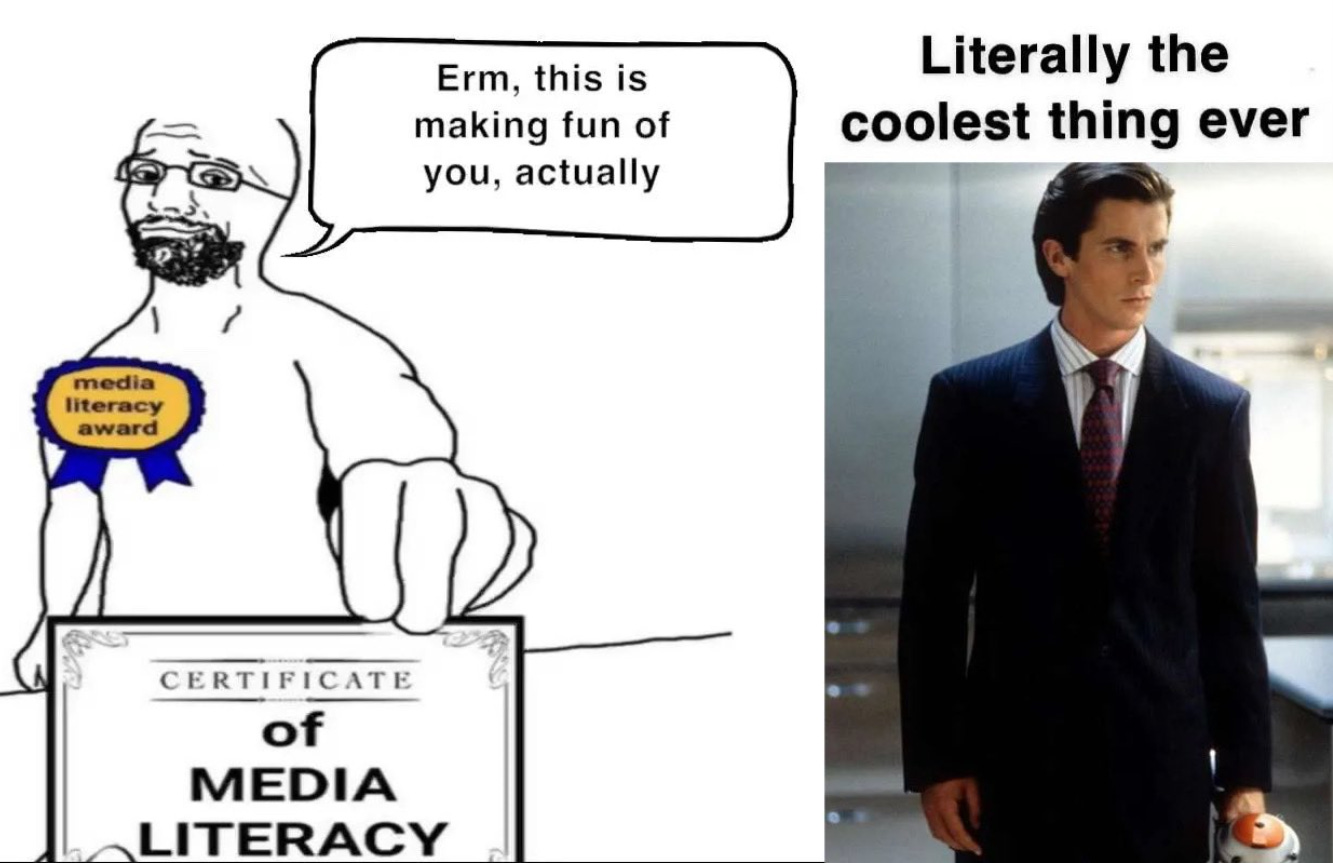"Media Literacy" is a Lie
Who gets to say what a piece of art means?
I was speaking to someone recently about Tom Holland’s book Dominion and they noted there were two versions of the arguments made in that book, which is that Christianity was not only an essential influence on the formation of Western culture but that it’s influence has not waned, and that it continues to act on us in hidden ways.
The speaker noted there’s the Dominion argument as it exists in the book itself and in long-from interviews with the author, which is nuanced and subtle. Then there’s the version of it that exists in tweets and soundbites which is reductive and unfalsifiable - that every idea you can name is really Christianity in disguise and even if you think of any, that’s because of Christianity too.
“Media Literacy” is like that. We live our lives through content, so the ability to understand how media acts on us, and how any individual piece of media was intended to work is essential; that’s the idea in its worthiest form.
But in the past few years "Media Literacy" has begun to be employed as an insult, accusation and battle-cry for left-leaning commentators on the internet. This use of the term has arisen at the same time and in response to the often ahistorical claim that media has "gone woke" by inserting didactic and politicised messages into popular entertainment in a way that they hadn't before, and as part of the moral panic around misinformation.
It's employed whenever people feel someone is enjoying a work in a way that misunderstands its core liberal message or overlooks some transparent left-wing political or cultural meaning in it. It's also used to mock non-liberal people's supposed inability to grapple with things like allegory, metaphor, or irony, or really any information conveyed in a way that is not direct and literal.


